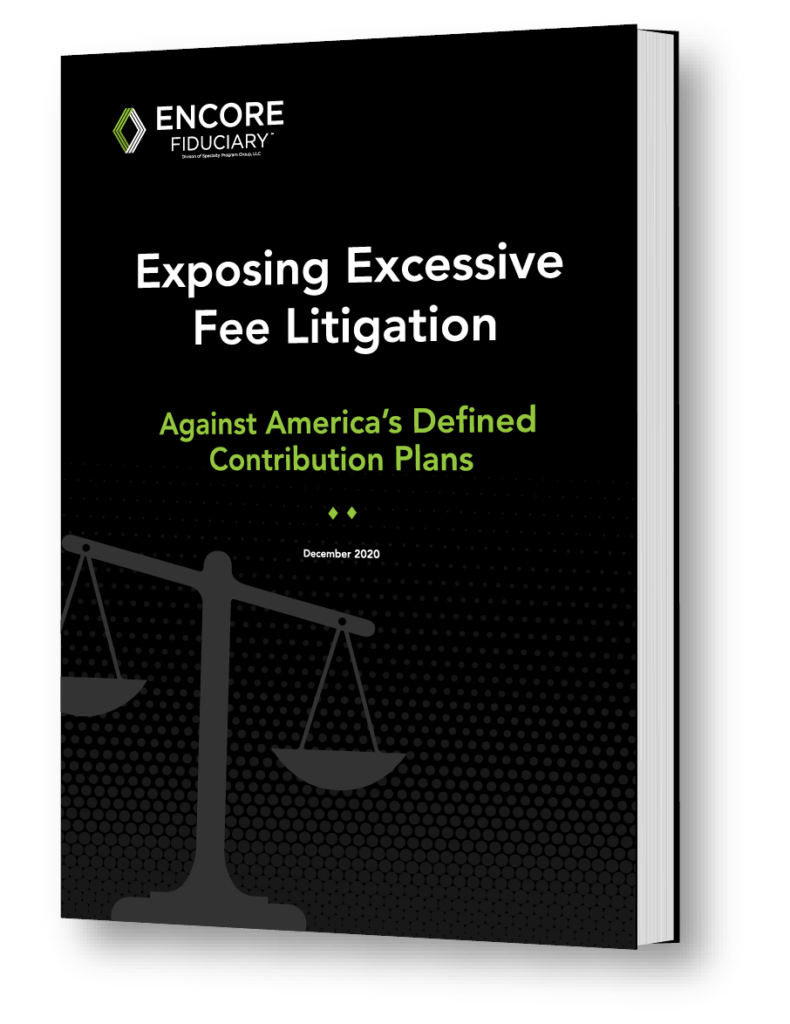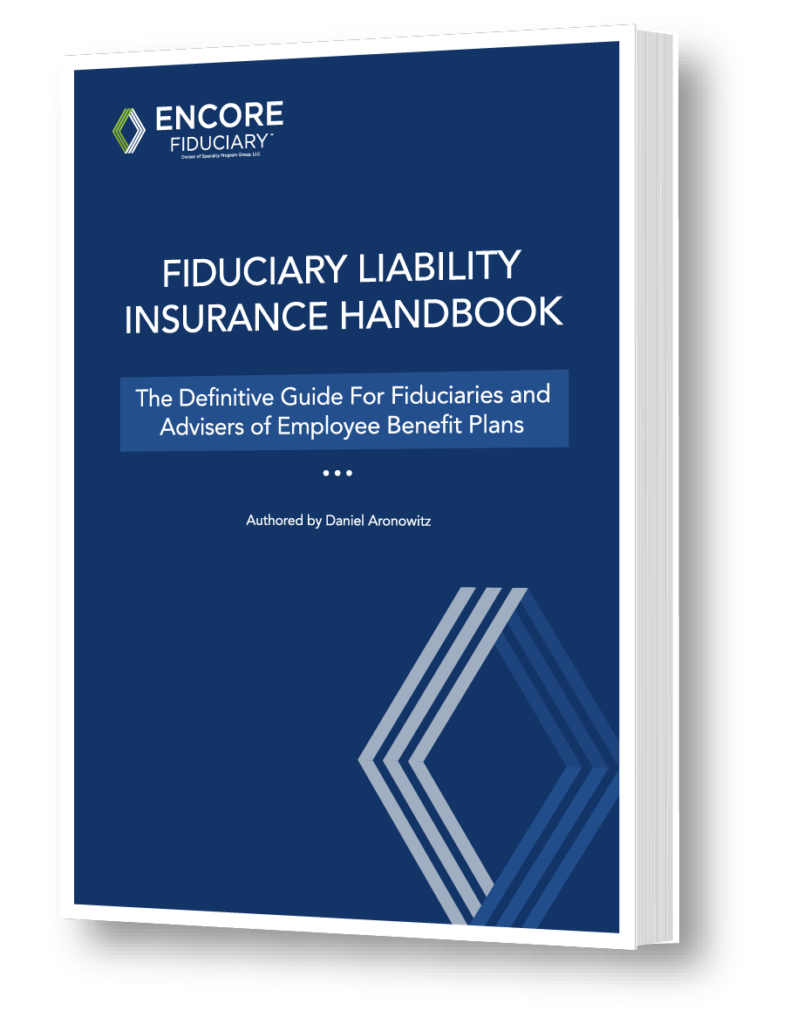On March 18, 2020, the President signed the Families First Coronavirus Response Act (“Families First Act”), and signed the Coronavirus Aid, Relief, and Economic Security Act (“CARES Act”) on March 27, 2020. The Families First Act requires group health plans, health insurers and government programs to provide free coronavirus testing, and the CARES Act clarifies some of the health care plan provisions. Like any new legislation, coverage issues and questions will arise, and will likely lead to participant benefit and provider reimbursement disputes. This article addresses how your fiduciary liability insurance coverage, particularly for health and welfare benefit plans, would respond to this new legislation.
Potential Plan Coverage Issues
The Families First Act requires that group health plans and health insurance issuers of group or individual health coverage cover FDA-approved COVID-19 diagnostic testing products. This coverage mandate includes items and services furnished during a provider visit to the extent those items and services relate to the furnishing or administration of the testing product or the evaluation of the individual’s need for the testing product. Provider visits include office, telehealth, urgent care, and emergency room visits. The key point is that the coverage mandate is tied to the test, as it is not clear what happens if no test is administered or approved. The mandated coverage must be provided without “any cost sharing (including deductibles, copayments, and coinsurance) requirements or prior authorization or other medical management requirements.” Both self-insured and insured group health plans must comply with these coverage requirements, regardless of whether they are grandfathered.
The subsequent CARES Act expands the definition of covered diagnostic test to include tests for which: (a) “the developer has requested or intends to request emergency use authorization” from the FDA until the request is denied or the developer does not submit the request within a reasonable time; (b) that are “developed in or authorized by a State”; or (c) that are deemed appropriate by the Secretary of HHS.
The CARES Act requires transparency in the pricing of the test. Specifically, plans and issuers must reimburse health providers of COVID-19 diagnostic testing at the same rate as previously negotiated before the emergency declaration by HHS for the duration of the declared emergency. If a plan or issuer did not have an existing, negotiated rate with a provider before the emergency declaration, the plan or issuer must pay the provider’s cash price for the test as listed by the provider on a public website or may negotiate a lower rate. During the emergency declaration period, the Act requires all providers of a COVID-19 diagnostic test to publish a cash price for the test on the provider’s public website. Providers that fail to comply may be subject to a fine of up to $300 per day imposed by HHS.
The requirement to cover testing is “off-Code,” meaning that it does not directly amend the Public Health Service Act, Employee Retirement Income Security Act, or the Internal Revenue Code. But the Secretaries of Health and Human Services (“HHS”), Labor and Treasury are expressly authorized to implement and enforce these requirements.
Like any new statute, initial questions have surfaced that will need government clarification.
- Do you need a test ordered for the office visit to be covered? The Families First Act requires group health plans and health insurance issuers to cover COVID-19 testing and certain items and services without cost-sharing or medical management. The coverage requirement is tied to the diagnostic test that is ordered or administered. It is not clear whether an in-network or out-of-network provider visit is covered if no test is ordered or administered because the statute does not address this issue.
- Is Out-of-Network treatment Covered? The Families First Act testing coverage requirement does not specify whether coverage is required for both in- and out-of-network services. This will likely be clarified to apply to out-of network services, but the issue is initially unresolved.
- What Diagnostic Test Are Covered? The CARES Act expands the definition of covered diagnostic test. In recent years, providers have become more sophisticated in taking direct assignments from plan participants and have been suing plans directly for alleged underpayment of health claims. Given that covered tests include diagnostic tests in development or submitted for approval, this lack of clarity is a recipe for potential disputes.
- Pricing of Tests: The CARES Act generally requires providers to publicize the prices of COVID-19 tests and plans must reimburse the provider in accordance with the prior negotiated rates or publicized cash price. The potential for pricing disputes is possible if there is a not a prior negotiated rate.
- Coverage for Terminated or Furloughed Employees: COBRA provides that an employee who is terminated and will lose eligibility for health plan coverage must be offered up to eighteen months of continuation coverage. Continuity of coverage is usually at the employee’s expense, although employers may choose to subsidize part or all of the coverage to ensure that employees do not lose coverage immediately. Nevertheless, it is not clear whether terminated or furloughed employers will be protected to maintain their coverage during this crisis.
How Should Your Fiduciary Liability Insurance Policy Respond?
Benefit denials are the leading type of claims filed against benefit plans. Participants routinely appeal benefit denials, and a small portion of those benefit appeal denials are challenged in court. Direct claims from providers are also growing in frequency, as more sophisticated providers are improving their collection tactics. While it is too early to know what will develop, we can reliably predict that benefit disputes will occur in the implementation and practice under the new laws. Defense of benefit disputes that might arise from this new legislation are a key protection under your plan’s fiduciary liability insurance policy. Several provisions are worth reviewing in advance.
- Is the Coronavirus Response Legislation Covered Under Your Fiduciary Policy? The first fiduciary insurance coverage issue is whether the new legislation is covered under your fiduciary liability insurance policy. The answer should be yes. Fiduciary liability insurance policies are claims-made insurance policies that cover “wrongful acts,” which is defined to mean “any breach of the responsibilities, obligations or duties imposed upon fiduciaries of a Plan by an Employee Benefit Law.” “Employee Benefit Law” should be defined in a quality fiduciary policy to include any federal fiduciary law or state statute or provision concerning fiduciary standards of care with respect to a covered Plan. Accordingly, any fiduciary obligations under the new legislation should be automatically covered even when the new laws are not specifically listed in policy.
- Coverage for Participant Benefit or Provider Claims: Fiduciary Liability insurance policies will exclude the payment of a plan obligation or benefit to a plan participant or beneficiary, but will provide a defense to a lawsuit seeking benefits under a plan. In other words, the contract benefit obligation is not covered, but defense expense for any claim relating to the amount owed by the plan will be reimbursed by the insurer. Fiduciary policies will also cover the defense of any potential provider claim seeking reimbursement of health services to a plan participant.
- HIPAA Compliance: Section 3224 of the CARES Act provides that within 180 days of enactment, the Secretary of HHS must issue guidance regarding the sharing of patients’ PHI during the COVID-19 public health emergency and compliance with HIPAA regulations and applicable policies. The need for test evidence and statistics to inform public policy creates a higher risk of improper disclosure of private patient information, including the identity of coronavirus patients with the infection. While fines and penalties are excluded from the damages covered by fiduciary insurance, a quality fiduciary policy will provide a specific sublimit of coverage for HIPAA penalties that can be assessed by HHS. The key issue is to ensure that your policy covers both the privacy and security HIPAA rules.
The Euclid Perspective
The legislation in response to the coronavirus pandemic is just days old, but like any new rules, issues will arise that could result in benefit and provider disputes against health plans. Your fiduciary liability insurance policy should protect your plan in the event of possible benefit disputes. Please contact your insurance broker or Euclid underwriter if you would like a more detailed review of your fiduciary liability insurance policy.


